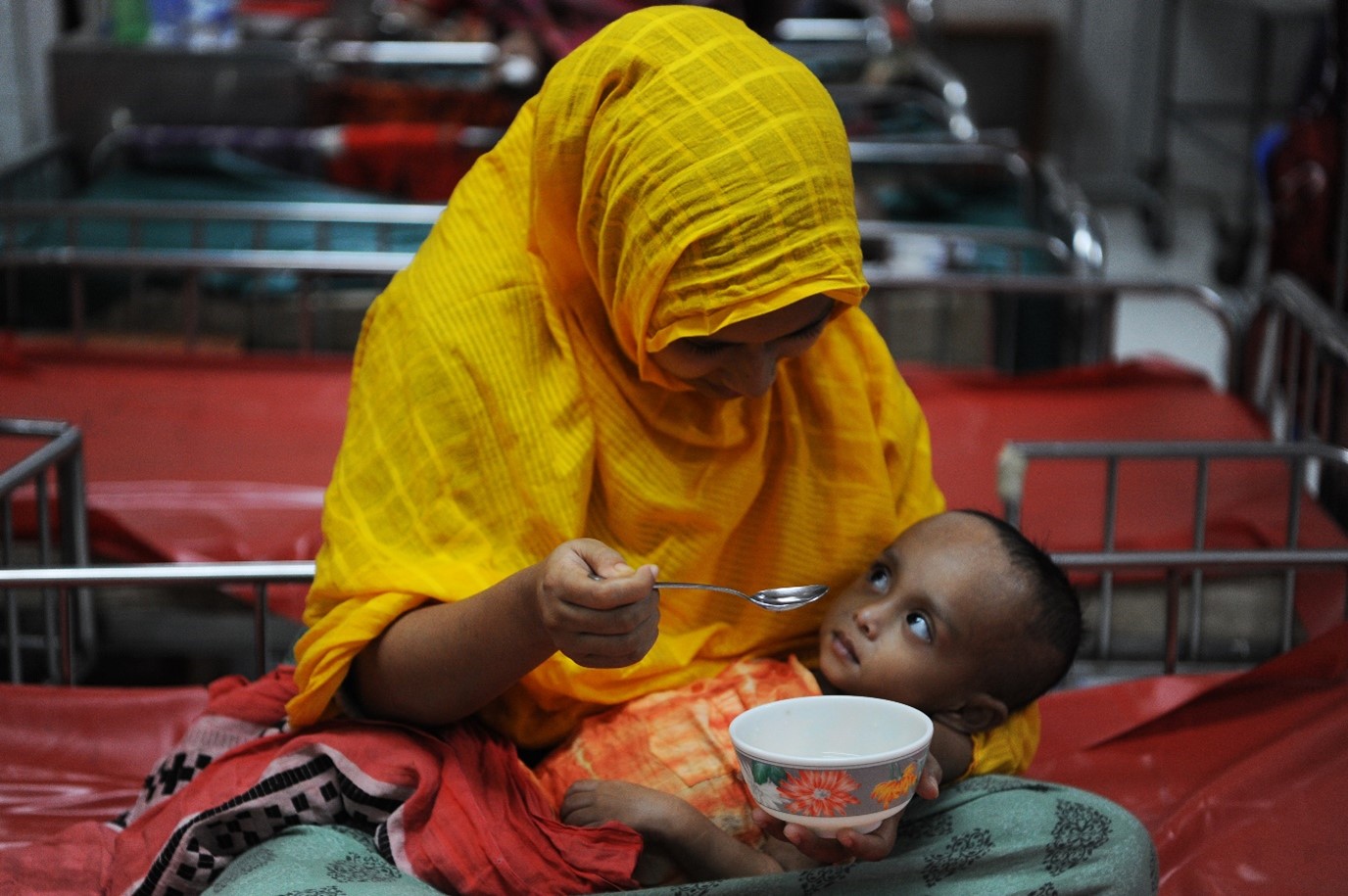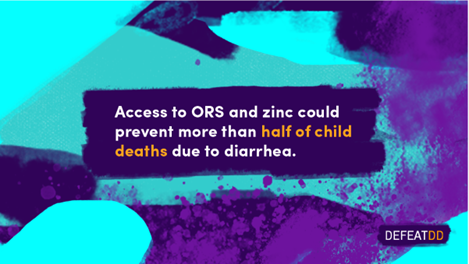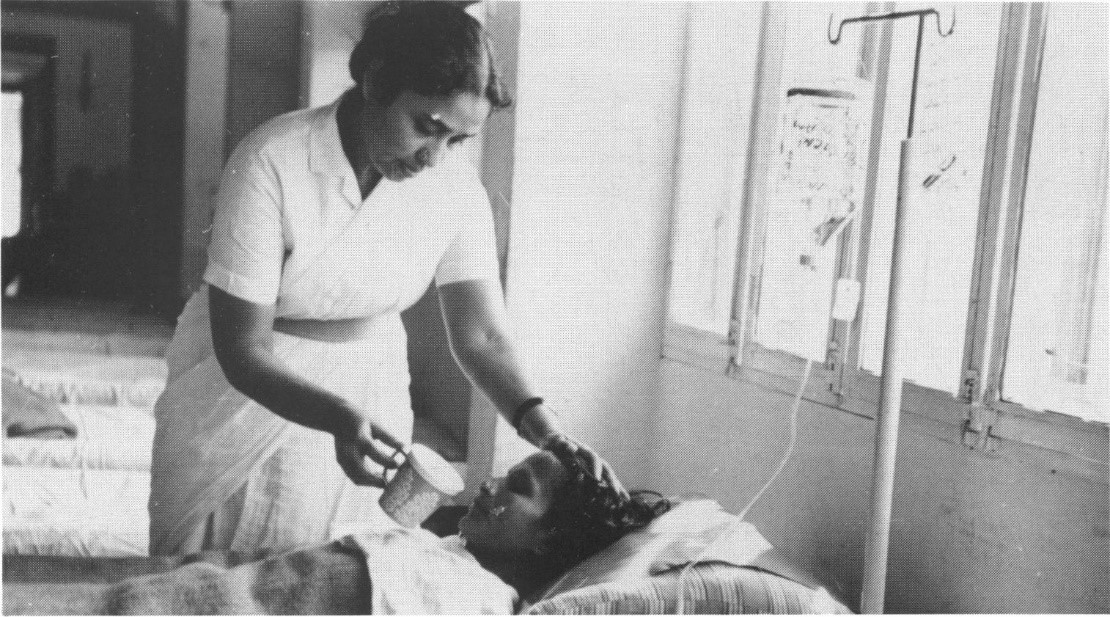
The ORS Journey: Saving Lives One Spoonful at a Time

Photo: icddr,b.
Ever heard of the saying, “Small things can make a big difference?” Since 2015, I have had the privilege of working at icddr,b, which houses the world’s largest diarrhoeal disease hospital. It’s an enlightening experience, especially when you see the impact of small but powerful innovations. Take the humble packet of Oral Rehydration Salts (ORS), for example: a simple yet effective lifesaver that’s a proud gift from Bangladesh to the world. It truly exemplifies the notion that big changes can come in small packages.
We have come a long way since the early days of Oral Rehydration Therapy (ORT), in the 1960s. Researchers were labouring tirelessly at the Pak-SEATO Cholera Research Laboratory (now icddr,b), trying to figure out how to deal with cholera’s deadly dehydration. This simple mixture of glucose, sodium chloride, sodium bicarbonate and potassium – all dissolved in clean drinking water – became a game changer. Little did we know that this “Magic Bullet,” as we call it, would revolutionize medical history, saving millions of lives.
 In the early days, scepticism was rife. The idea that a simple oral solution could combat catastrophic, and often deadly, dehydration induced by cholera seemed almost inconceivable. Yet, standing resolute in the face of doubt were committed researchers like Dr W. B. Greenough, Dr Hirschhorn, Dr David B. Sachar, Dr Rafiqul Islam, Dr Majid Molla, Dr Richard Cash, and Dr David Nalin, along with numerous others. We recently lost one such pivotal figure, Dr Dilip Mahalanabis. His ground-breaking work, particularly the successful mass deployment of ORS in refugee camps during the 1971 Independence War of Bangladesh, has left an indelible legacy. The unwavering dedication of these trailblazers gradually began to dissolve the prevalent scepticism, conclusively demonstrating that ORS could benefit not only adults but also children and patients suffering from non-cholera diarrhoeal diseases. Much of this work took place at icddr,b’s hospitals in Dhaka and Matlab.
In the early days, scepticism was rife. The idea that a simple oral solution could combat catastrophic, and often deadly, dehydration induced by cholera seemed almost inconceivable. Yet, standing resolute in the face of doubt were committed researchers like Dr W. B. Greenough, Dr Hirschhorn, Dr David B. Sachar, Dr Rafiqul Islam, Dr Majid Molla, Dr Richard Cash, and Dr David Nalin, along with numerous others. We recently lost one such pivotal figure, Dr Dilip Mahalanabis. His ground-breaking work, particularly the successful mass deployment of ORS in refugee camps during the 1971 Independence War of Bangladesh, has left an indelible legacy. The unwavering dedication of these trailblazers gradually began to dissolve the prevalent scepticism, conclusively demonstrating that ORS could benefit not only adults but also children and patients suffering from non-cholera diarrhoeal diseases. Much of this work took place at icddr,b’s hospitals in Dhaka and Matlab.
 Captured in 1968 during the study that led to the discovery of ORS, this photograph features Ms Bashonti, the chief study nurse, initiating oral therapy for a patient recovering from shock. Photo: Dr David Nalin.In 1978, The Lancet didn’t hold back, declaring ORS as ‘potentially the most important medical advance of this century.’ Yet, with a tinge of bitter irony, I pen down these words knowing that half a million children under the age of five still lose their lives to diarrhoeal diseases annually. Even more disheartening is the fact that a about half of children suffering from diarrhoea aren’t receiving the potentially life-saving ORS. These aren’t cold, hard statistics; they’re heart-wrenching realities. They’re the lives of children we have the power to save.
Captured in 1968 during the study that led to the discovery of ORS, this photograph features Ms Bashonti, the chief study nurse, initiating oral therapy for a patient recovering from shock. Photo: Dr David Nalin.In 1978, The Lancet didn’t hold back, declaring ORS as ‘potentially the most important medical advance of this century.’ Yet, with a tinge of bitter irony, I pen down these words knowing that half a million children under the age of five still lose their lives to diarrhoeal diseases annually. Even more disheartening is the fact that a about half of children suffering from diarrhoea aren’t receiving the potentially life-saving ORS. These aren’t cold, hard statistics; they’re heart-wrenching realities. They’re the lives of children we have the power to save.
By 2002, pioneering scientists at icddr,b again made a significant discovery regarding the profound potential of zinc in reducing overall child mortality rates caused by diarrhoea. This critical innovation led to WHO and UNICEF endorsing zinc in 2004 as an essential supplement to be used in conjunction with ORS in treating all instances of diarrhoea. This recommendation has significantly aided numerous developing countries in their fight against child mortality.
 Alfred Ochola makes the rounds in a pedaitric ward in Western Kenya. Read about his experiences treating patients with ORS. Photo: PATH/Tony Karumba.Treatment with ORS and zinc has proven its potential in the last few decades. It’s a cost-effective, simple, and efficient solution, and it’s high time that it reaches all corners of the world. So, let’s make a pledge. Let’s ensure that co-packaged ORS and zinc become as common in households as a First-aid kit. Let’s take a stand to make it accessible in the remotest villages and the densest cities. Let’s make sure no child, no person, has to succumb to dehydration because they didn’t have access to these lifesaving treatments.
Alfred Ochola makes the rounds in a pedaitric ward in Western Kenya. Read about his experiences treating patients with ORS. Photo: PATH/Tony Karumba.Treatment with ORS and zinc has proven its potential in the last few decades. It’s a cost-effective, simple, and efficient solution, and it’s high time that it reaches all corners of the world. So, let’s make a pledge. Let’s ensure that co-packaged ORS and zinc become as common in households as a First-aid kit. Let’s take a stand to make it accessible in the remotest villages and the densest cities. Let’s make sure no child, no person, has to succumb to dehydration because they didn’t have access to these lifesaving treatments.
So, here’s my call to you. Advocate, educate, and raise awareness about the power of ORS and zinc. Talk to your communities, local governments, and healthcare providers. Let’s join hands to make sure these treatments reach everywhere. Together, we can ensure zero mortality due to the unavailability of these crucial tools in treating diarrhoea. We must ensure that these continue to be the lifesavers they were designed to be.
Let’s make ORS and zinc accessible to all, and keep saving lives, one spoonful at a time.


